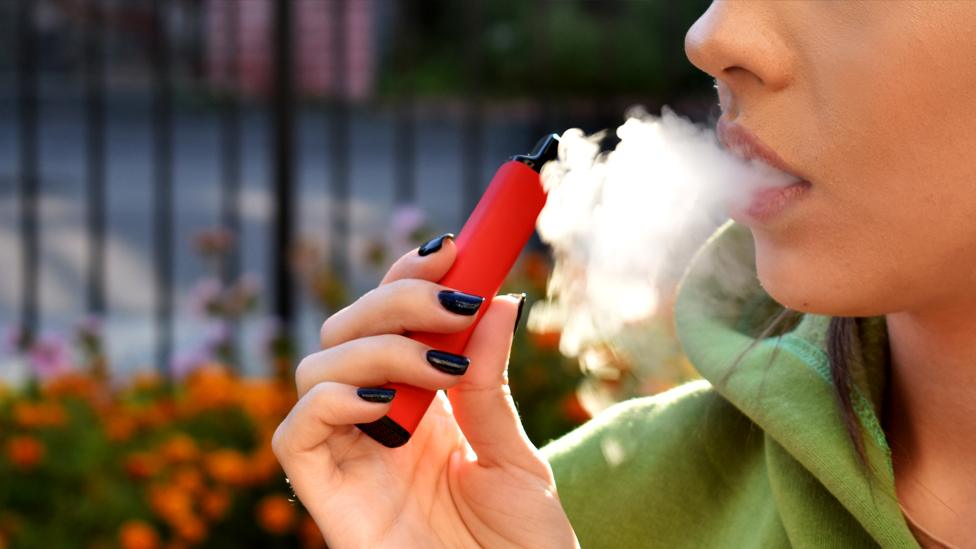'Massive' increase in young Scots vaping, MSPs told
- Published
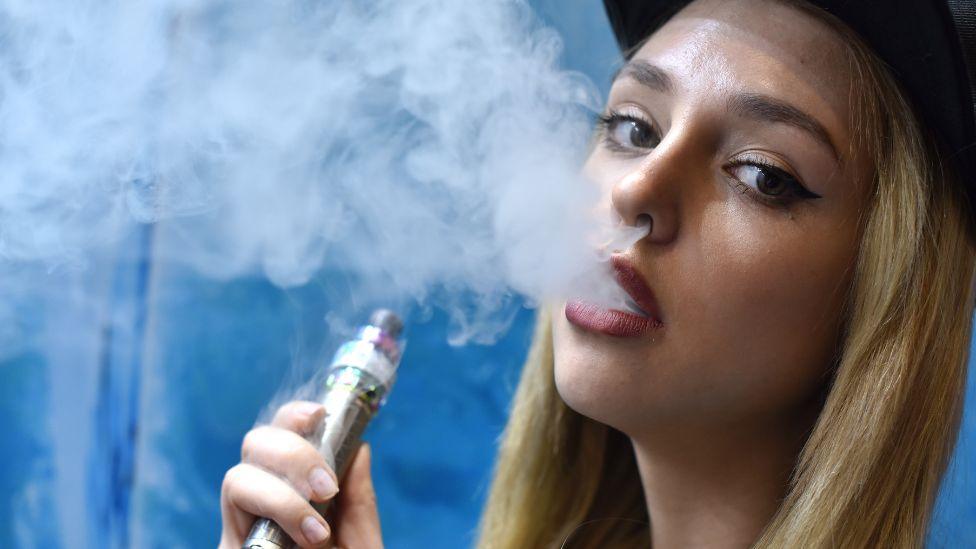
The Scottish Parliament's health committee heard evidence on youth vaping
A "massive" increase in the number of young Scots vaping is being driven by products marketed directly at children, a Holyrood committee has heard.
MSPs were told that one in four 15-year-olds were believed to be vaping.
Public Health Scotland consultant Dr Garth Reid said a 2022 survey found 10% of 13-year olds and 25% of 15-year-olds were using vapes. This was up from 1% and 2% respectively in 2015.
He said the smoking rate among 15-year-olds had dropped to about 4%.
In September, First Minister Humza Yousaf said his government would hold a consultation on a single-use vape ban.
The UK Vaping Industry Association said e-cigarettes should be celebrated for helping people to stop smoking and said a ban would create a black market.
Sheila Duffy, Action on Smoking and Health (Ash) Scotland chief executive, said there was "conclusive evidence" that e-cigarette aerosol "contains particulate matter of the kind that has been implicated in mechanisms like lung inflammation, DNA damage and subsequent risk of lung cancer".
She said there had been a "massive rate of uptake" among young people in Scotland since autumn 2021.
"And it's driven by products that are marketed pretty much entirely at children, through bright colours, sweetie flavours, the way they are designed, the price point, the availability," Ms Duffy told MSPs.
She warned that disposable vapes, which she said had also driven the increased uptake in children, typically contained the highest permitted rate of nicotine.
She said paediatricians were "extremely concerned" and were warning of "huge" health risks.
'Lifelong customers'
Prof Emily Banks of the Nuffield Department of Population Health told the committee that e-cigarettes had been linked to health issues, particularly among young people. She cited poisoning, loss of consciousness, seizures, lung injuries, burns and deaths.
She added that possible links to cancer and cardiovascular diseases required long-term study to be fully understood.
Vaping has also been associated with an uptake in smoking as young people with nicotine addictions are more likely to have addictions in later life.
Prof Banks said the tobacco industry and other sectors were "aggressively targeting" children and adolescents to create "lifelong customers".
"We have kids who have difficulties sitting through a lesson or sitting through a meal with the family who are experiencing addiction," she said.
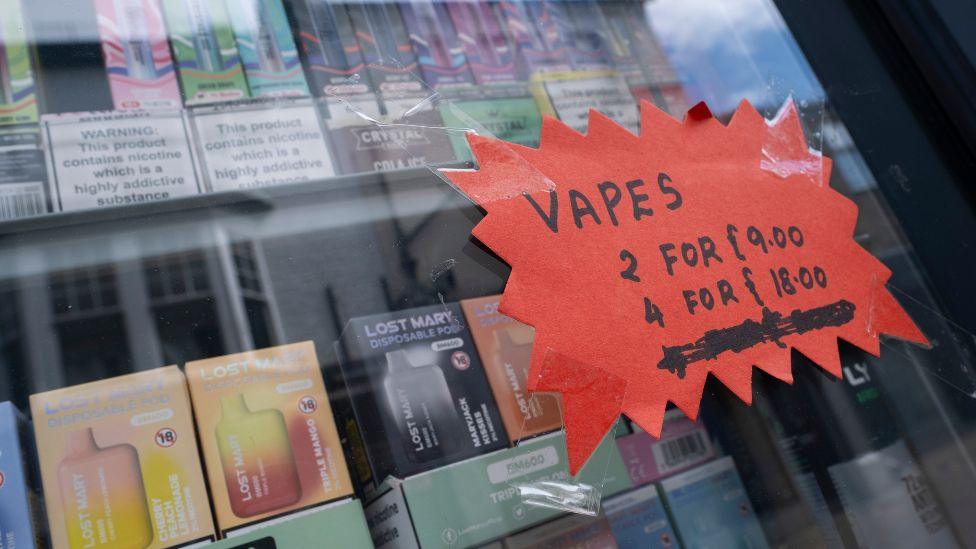
The expert said e-cigarettes were believed to contain between 900 and 2,000 distinct chemical entities, many of which were unknown, but others were known to be "hazardous".
"There are a lot of other emissions and particulate matter in what is being inhaled," she told MSPs.
However, Prof John Britton, emeritus professor of epidemiology at the University of Nottingham, said that while it was "unequivocal" that vaping had adverse health effects, the "magnitude of adverse effects is extremely small", especially compared with smoking.
Prof Britton pointed out the concentration of potentially harmful chemicals were typically very low in vapes.
He said five deaths had been linked to vaping in the UK since 2010, compared with about one million linked to smoking.
The expert said he had "no doubt" vaping would be linked to cancer and heart disease in the future but believed the cases would be in the tens and hundreds.
Dr Reid told MSPs the child vaping figures - from the Health Behaviour in School-aged Children Scotland, external study from 2022 - were based on "current" use - meaning the person had used an e-cigarette in the past 30 days.
The research found 40% of Scottish 15-year-olds had tried e-cigarettes, compared with 19% of 13-year-olds and 3% of 11-year-olds.
The study reported that, since 2018, current vaping across all the age groups had increased from 6% to 30% among girls and 8% to 20% among boys - meaning the increase had largely been driven by girls.
Dr Reid said the figures did not indicate that young smokers were switching to vaping.
"There's obliviously a whole big group of kids who are taking this up who weren't smoking," he told the committee.
Vaping ban
Unlike smoking, Dr Reid said vaping was not as "socially patterned", with rates of uptake among different socio-economic groups broadly flat.
He said the rate of adults vaping was "flatter" for adults at about 5%.
Setting out his Programme for Government in September, the first minister said disposable vapes could be banned in Scotland.
He told the Scottish Parliament: "I hear too often about how common vaping is among our young people.
"In the next year we will take action to reduce vaping - particularly among children.
"I'm pleased to announce that this government will consult on curbing the sale of disposable single-use vapes, including consulting on an outright ban."
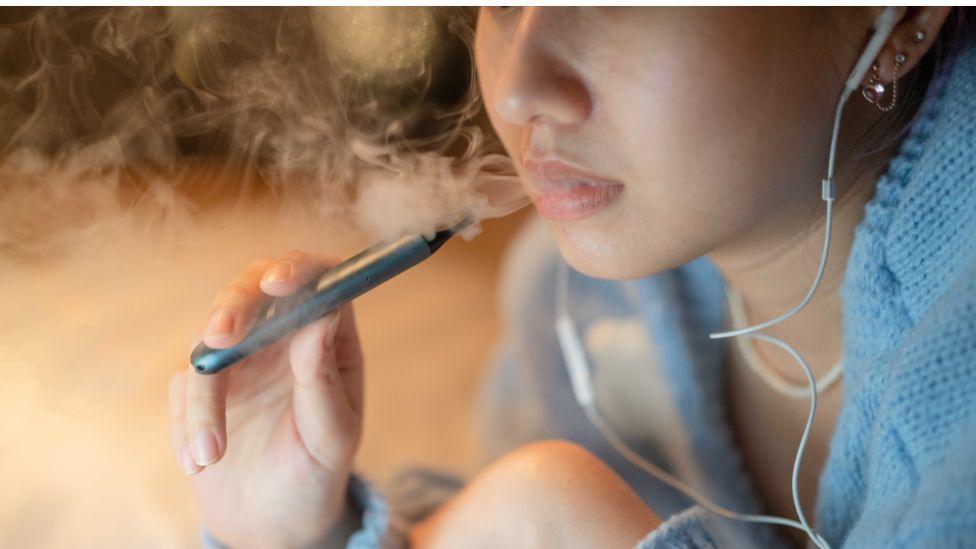
John Dunne, director general of the UK Vaping Industry Association, reiterated calls for licensing and controls for selling vaping products.
He said vapes should be celebrated for driving down smoking numbers and the focus should be on stricter licensing so "rogue retailers" were punished for selling them to children.
"What we've got is an uptake in the new style of devices that are being pushed on social media, not necessarily even originating in this country," he told BBC Scotland News.
"And that's something that we've got to target, but target it in the right way while not upsetting the fantastic work that vaping is doing with adult smokers."
Mr Dunne said banning single-use vaping products would be a "huge mistake" which would create a black market.
On health concerns about vaping, he added: "Yes it's not 100% safe … but what we do know is that if you smoke vaping is at least 95% less harmful."
- Published5 September 2023
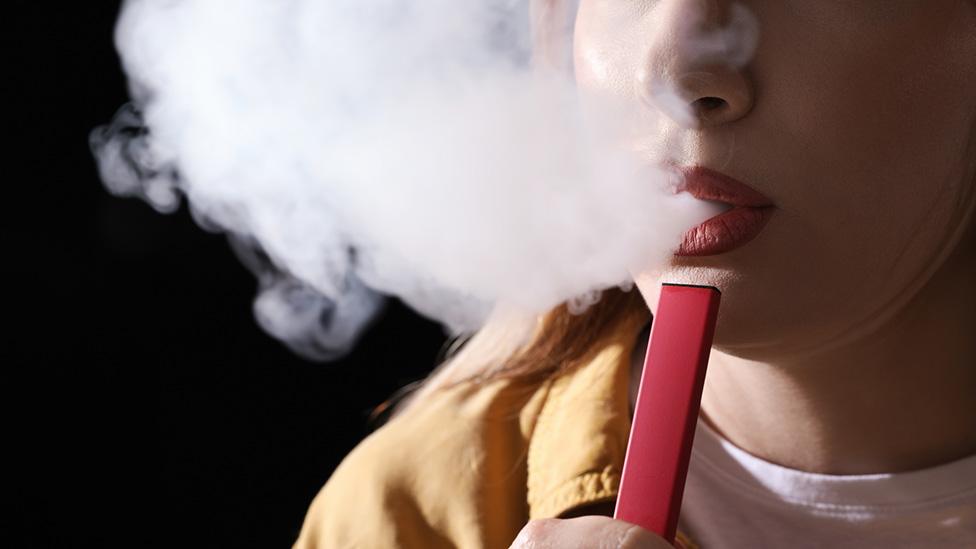
- Published17 August 2023
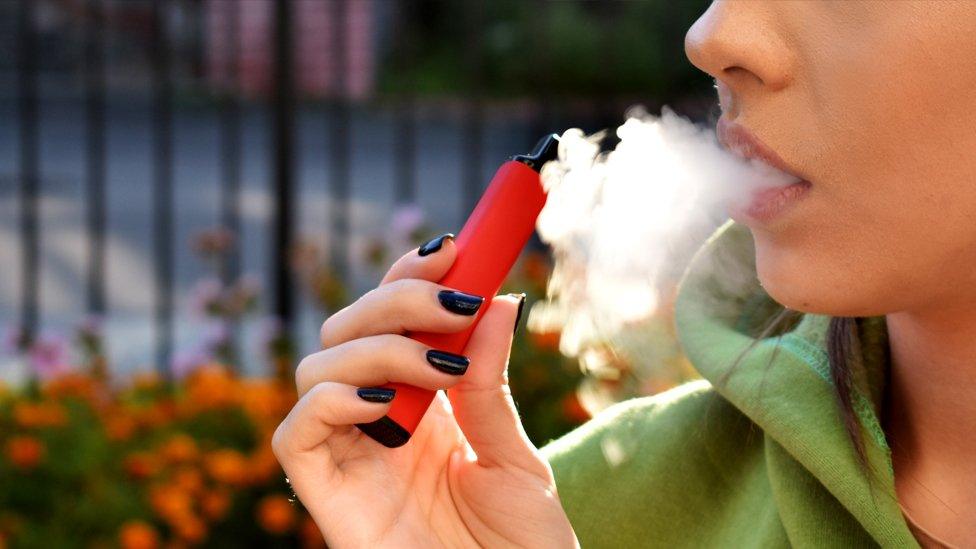
- Published30 June 2023
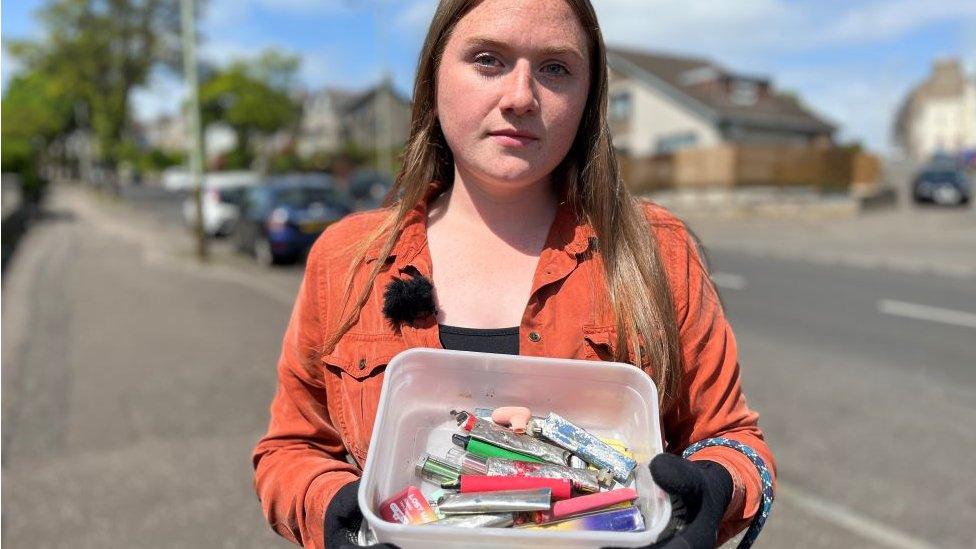
- Published6 June 2023
